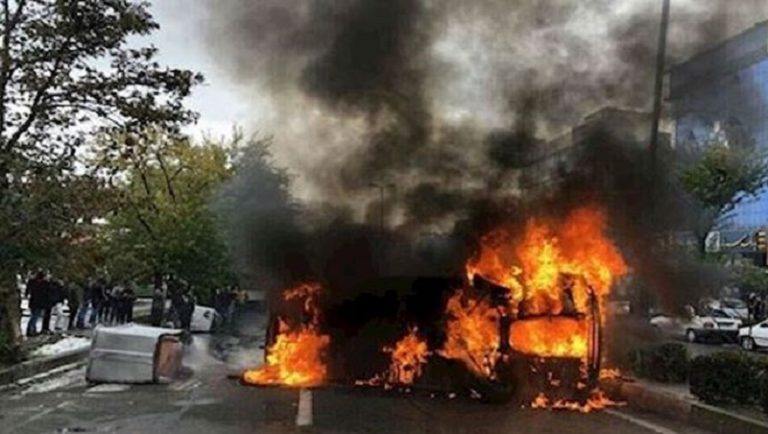Iran: State-Run Media Underline the Possibility of Another Uprising

Written by
Mansoureh Galestan
IRGC Political Deputy: Scope of Recent Uprising Greater Than 2009, 2018 Seditions.
Iran’s state-run media on Sunday and Monday acknowledged how the regime had destroyed Iran’s economy, people’s lives and warned about another social turmoil. Iranians now face rampant inflation, skyrocketing prices, and the coronavirus outbreak.
“The most damaging consequence of rising inflation is the gradual decrease of people’s purchasing power, and an increase in the number of people who, with high inflation and inability to earn a living, become poorer yearly,” wrote the state-run Etemad daily on Monday. Etemad quickly warns regime officials that “the ongoing and sharp decrease of people’s purchasing power is like a timebomb. If we do not defuse it at the right time, we wouldn’t know how much its blast would damage the system.”
While the mullahs’ regime and its apologists blame sanctions for all of Iran’s economic and social crisis, but state-run media reject this claim. “Iran’s economy has fallen victim to the oligarchy over the past few decades,” wrote the state-run Setareh Sobh daily on Monday. “The government is still in the service of the same oligarchy, and if this path does not change, the situation in Iran will worsen in the future,” Setareh Sobh adds.
Iranians are also going through the fourth wave of the Covid-19 outbreak. According to the Iranian Resistance movement, over 256,500 have lost their lives due to the novel coronavirus. The number of casualties is rising due to the regime’s inhumane Covid-19 policy and mullahs’ refusal to procure reliable vaccines.
Iran Protests: Nationwide Uprising in Iran- November 2019
Thus, Jahan-e Sanat daily on Monday warned officials that the regime’s deception and inaction have “made people angry about the current situation. It takes a spark to ignite people’s anger, and they will pour on the street violently. Then, they will be uncontrollable.”
These warnings come after what the regime experienced during the major Iran protests in 2018 and November 2019. These uprisings were the turning points in people’s conflict with the regime. Daily protests by all walks of life are in line with these uprising, showing that despite the regime’s heavy crackdown, mullahs’ have failed in oppressing the restive society.
“Protests in January 2018 and November 2019, whether we want it or not, have completely changed Iran’s political scene. Referring all problems to the social justice have unprecedently intensified,” wrote the state-run Seday-e Eslahat on Monday.
“There have been protests and strikes of workers from HEPCO [company] and Haft Tapeh [Sugar Cane Company]. Social security retirees continue to gather in various cities to increase their pensions,” Seday-e Eslahat article adds.
On Sunday, April 18, 2021, for the thirteenth week running in the past three months, retirees and pensioners protested against the dire living conditions, high prices, and low wages in Tehran and 16 other cities. They called for the nationwide boycott of the regime’s Sham presidential election.
The number of social protests in Iran has been rising since 2018. “In January 2018, Salman Samani, then spokesman of the Ministry of Interior, announced there were around 43,000 public gatherings between 2013 and 2017 (in other words, about 30 protests a day) throughout Iran. This was while the protests of the lower classes in the first half of 2018 became even more violent,” Seday-e Eslahat article reads.
“The November 2019 protests were a turning point in the social protests of the lower classes in Iran, which took on incredible proportions that political groups still blame each other for their consequences. The killing and injury of a large number of Iranians, along with the definite global financial and symbolic cost of the Internet blackout and the system losing its legitimacy, were all consequences of this event,” Seday-e Eslahat wrote.
Seday-e Eslahat then quotes Ahmad Tavakoli, a member of the regime’s Expediency Council, about society’s restiveness. “According to Ahmad Tavakoli, 60 percent of the population live under the poverty line, and they have the least level of trust in the system,” Seday-e Eslahat wrote.
“according to this member of the Expediency Council [Tavakoli], the ruling system should hear the voice of impoverished people; if not, something happens that should not happen,” Seday-e Eslahat warned regime officials.

